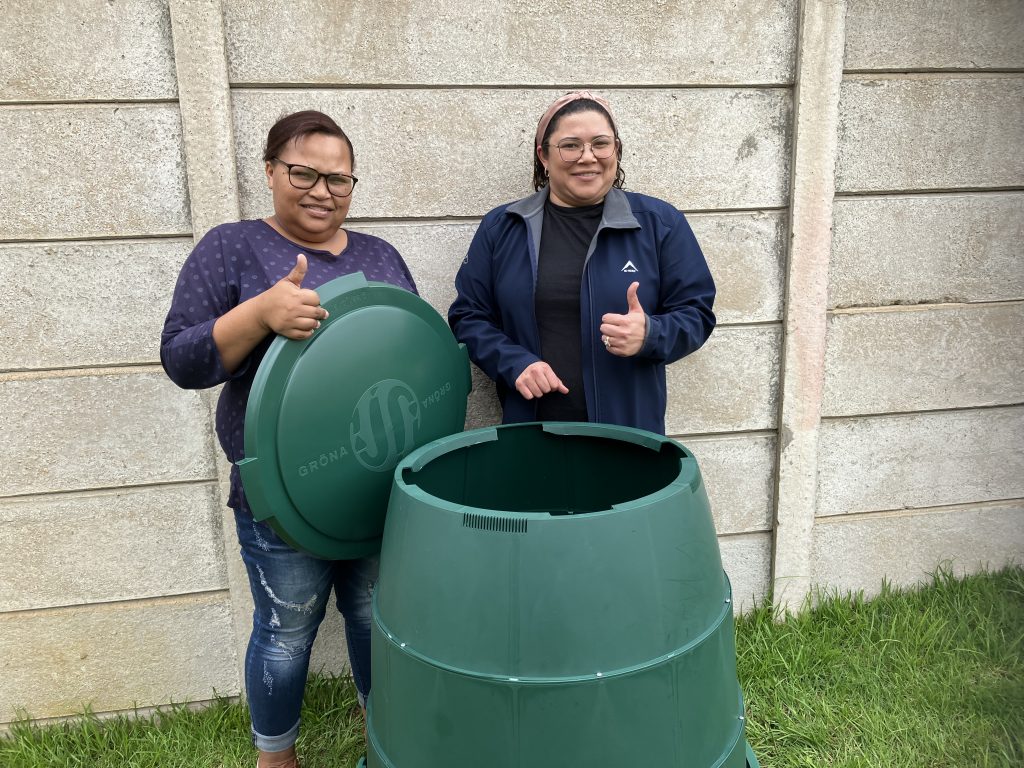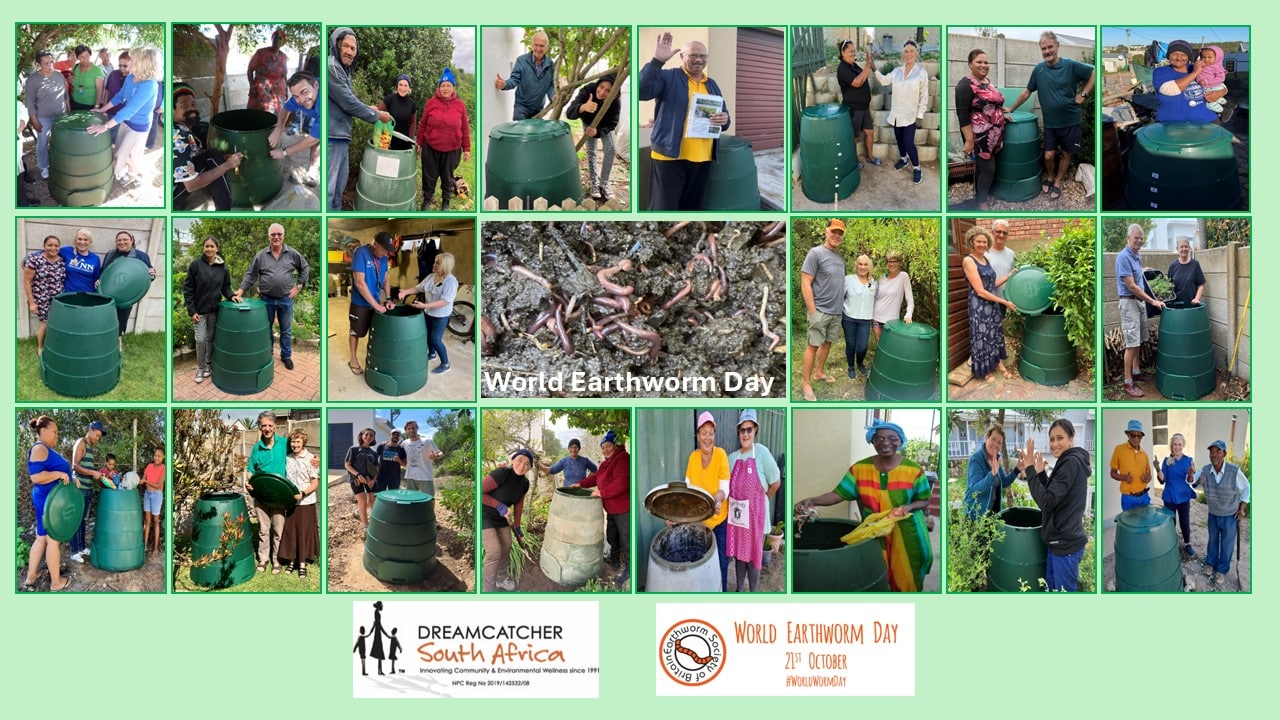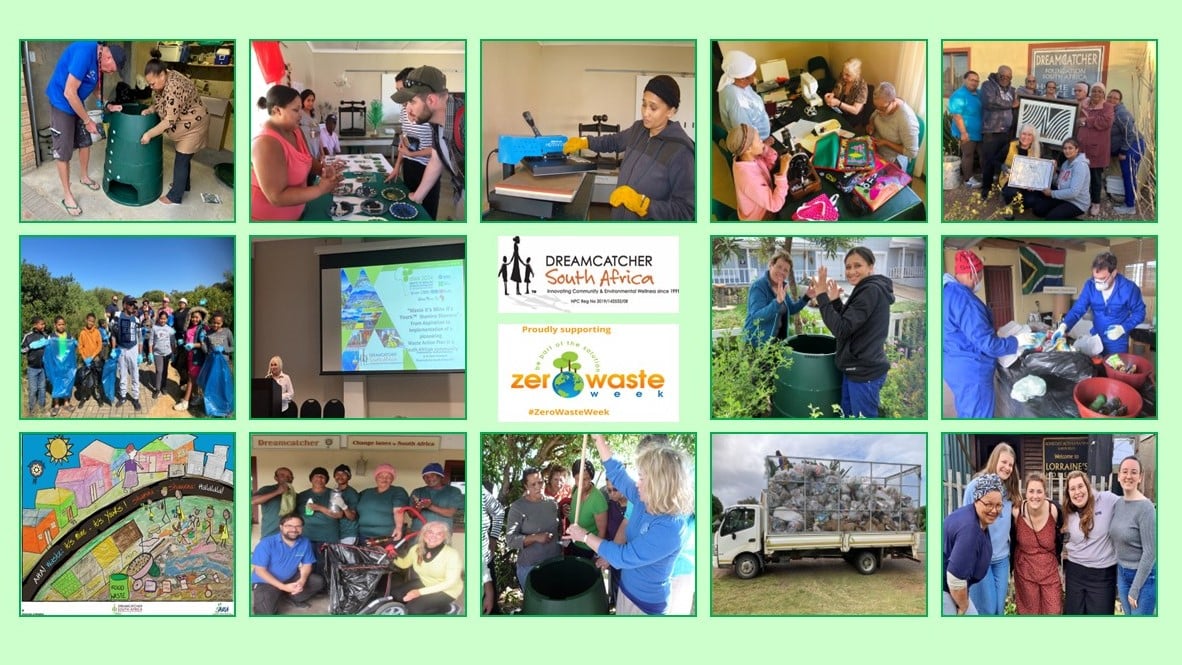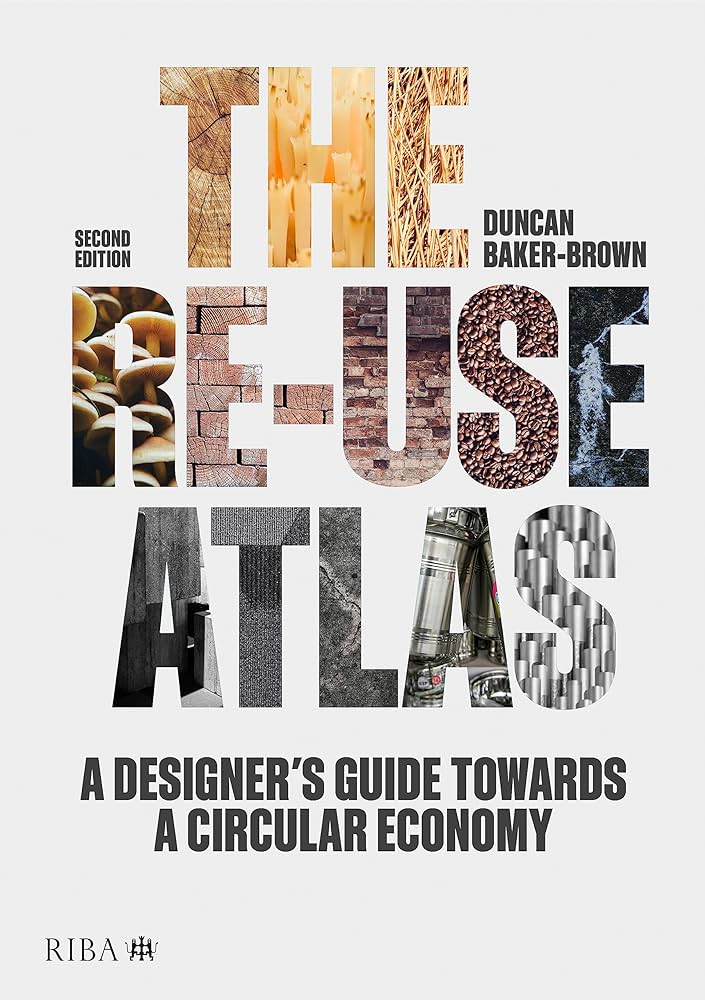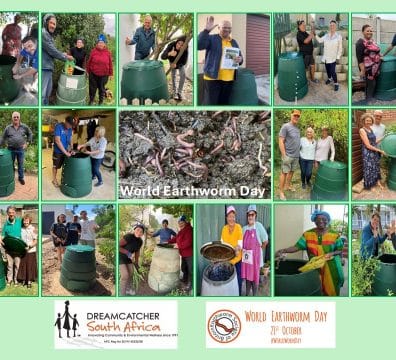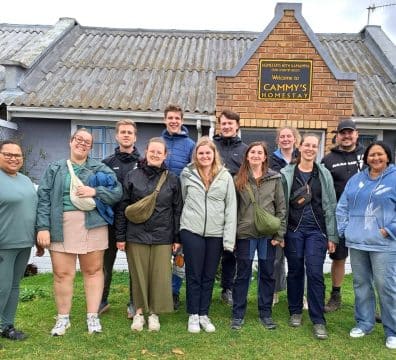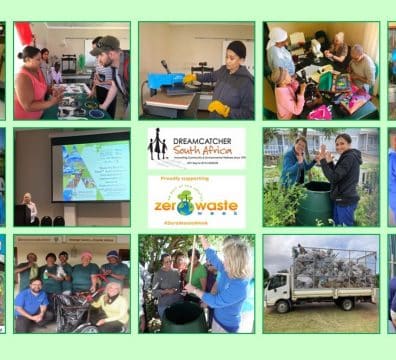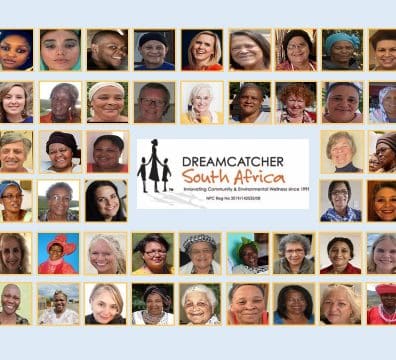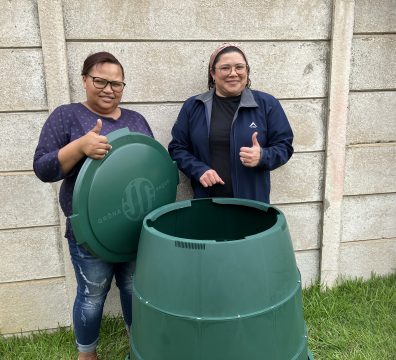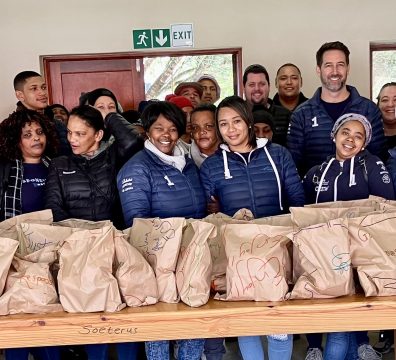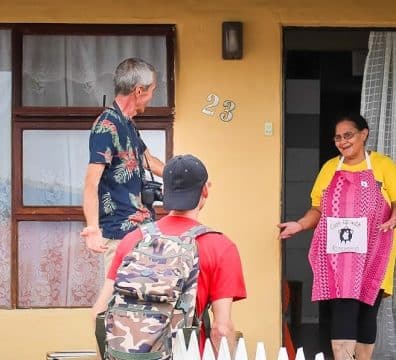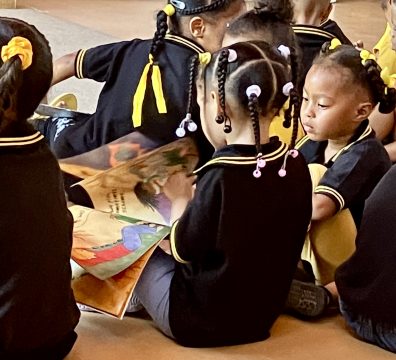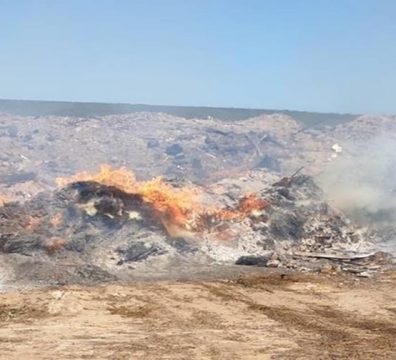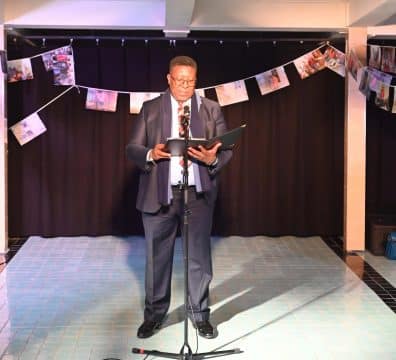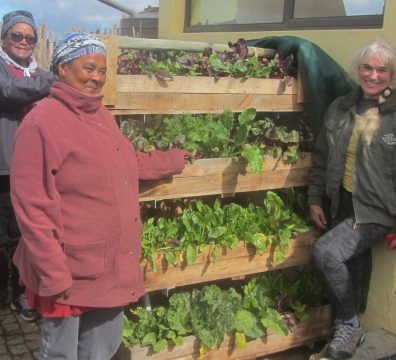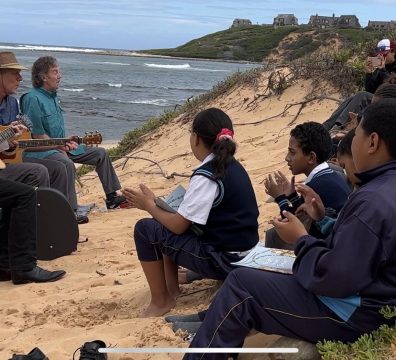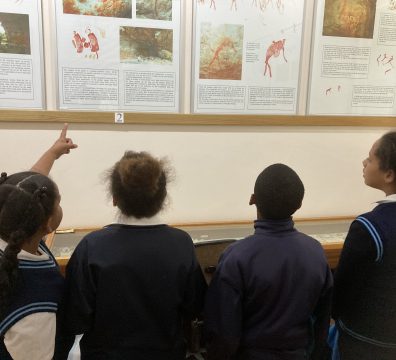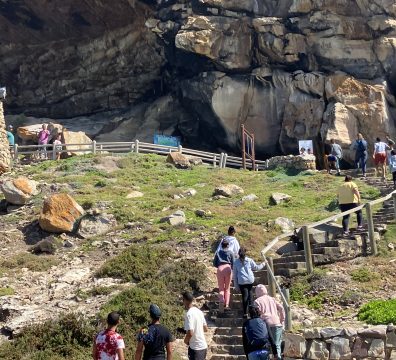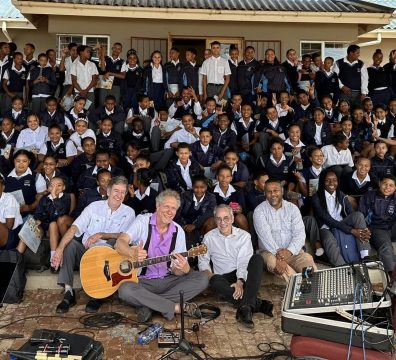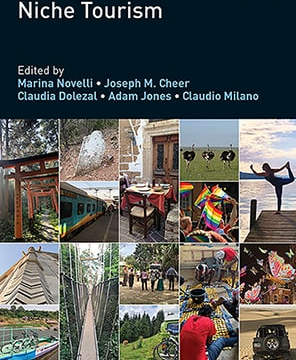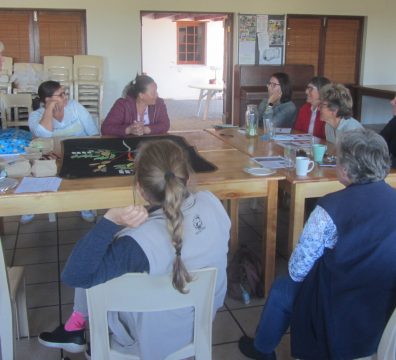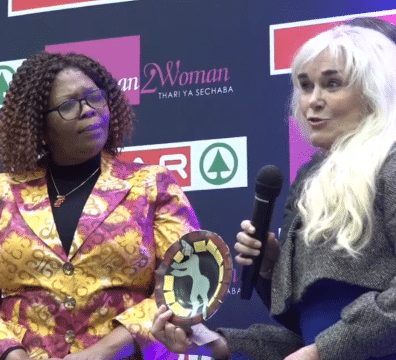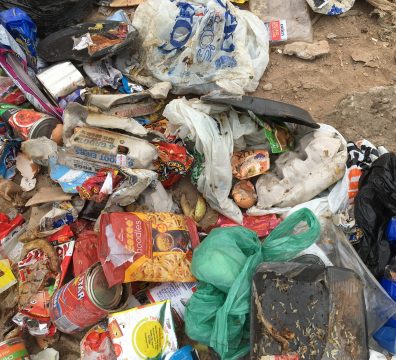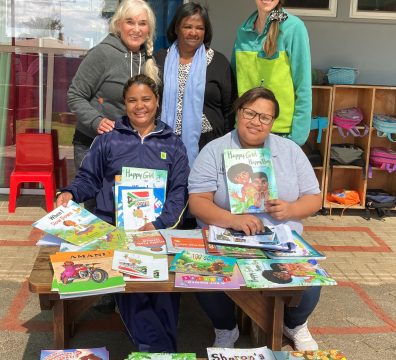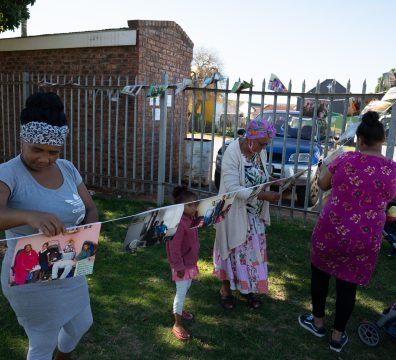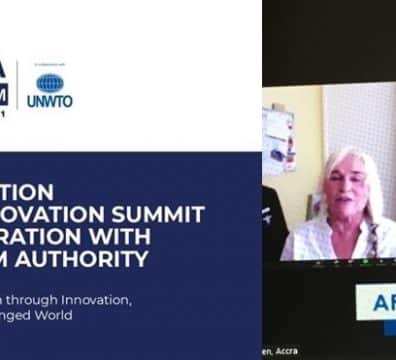Dreamcatcher has been working on addressing poor waste management since 2009. A key component of this work has been addressing organic waste. Organic waste – consisting mainly of food and garden waste – is a useful resource that can be recycled and transformed into compost to grow fruit, vegetables, and flowers in residential backyards.
Unfortunately, within South Africa much of this resource is being ‘wasted’. Most organic waste is sent to landfills where it breaks down generating greenhouse gases contributing to climate change. Many South African landfill sites are poorly managed leading to other impacts including attracting vermin, and polluting water sources.
We saw significant opportunities in home composting to address the waste challenges in communities where we work. In 2010 we imported a small number of Green Johanna home composters to South Africa and trialled their impact in addressing organic waste within township settings. The Green Johanna was selected to pilot based on its numerous advantages over conventional home composting units. They are fully enclosed, they can handle most food waste including meat, fish and processed food, and at 330 litres they are larger than other home composting units. We conducted our first waste awareness training with Kamammas (our tourism and associated service enterprises) and community members in Melkhoutfontein, Kayamandi and Stutterheim in 2010 – with follow up training in subsequent years including installing Green Johannas and support on how to use them.
Over a decade we have proven that the system works effectively with many of our Kamammas having Green Johannas installed at their homestays.
2024
In South Africa national targets were set to divert 25% of garden waste from landfill by 2018 and 50% by 2023. The Western Cape government targets went further with the aim of diverting 50% of organic waste from landfill by 2022, with all organic waste being prohibited from landfill by 2027. The Western Cape government estimated 28% of organic waste was diverted from landfill in 2022 – way below the 50% target. The majority of the organic waste diverted was garden waste with very little being done to tackle food waste.
Due the critical need to reduce levels of organic waste going to landfill, the significant opportunity to harness organic waste as a resource to produce compost, the clear need identified by the communities, and Dreamcatcher’s experience in this field – we decided to do something about it as a matter of urgency.
Dreamcatcher facilitated the import of 115 Green Johanna units to South Africa and started distributing these in the community at the end of March. Thanks to the support of Great Green Systems and donors, we were able to subsidise the costs and make the units available for 32% less than they retail at in the UK. Following Dreamcatcher’s inclusive approach, we are committed to make Green Johanna composters available to households living on low income. Leaving no one behind we are working on a specific project to enable low-income households to have access to the units. You can find more detail about the project and how to order a unit here: https://dreamcatchersouthafrica.com/the-dreamcatcher-home-composting
Last week was ‘International Compost Awareness Week’ which aims to raise public awareness of the benefits of composting. We were elated to feature in this video produced by our friends at Great Green Systems. Featuring footage of Dreamcatcher enterprises taken in 2012, it provides an overview of our work promoting composting in South Africa including our current Green Johanna initiative.


